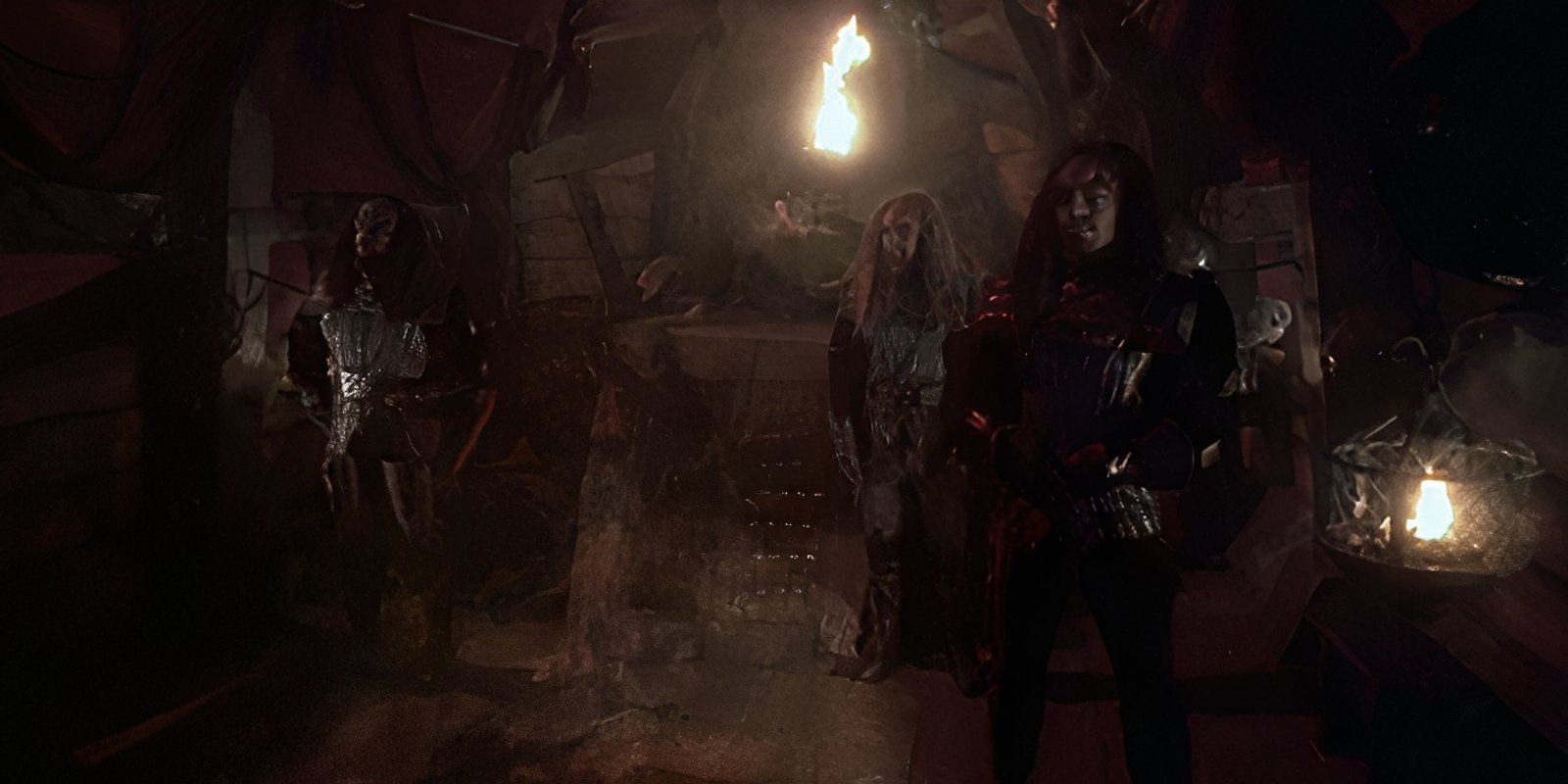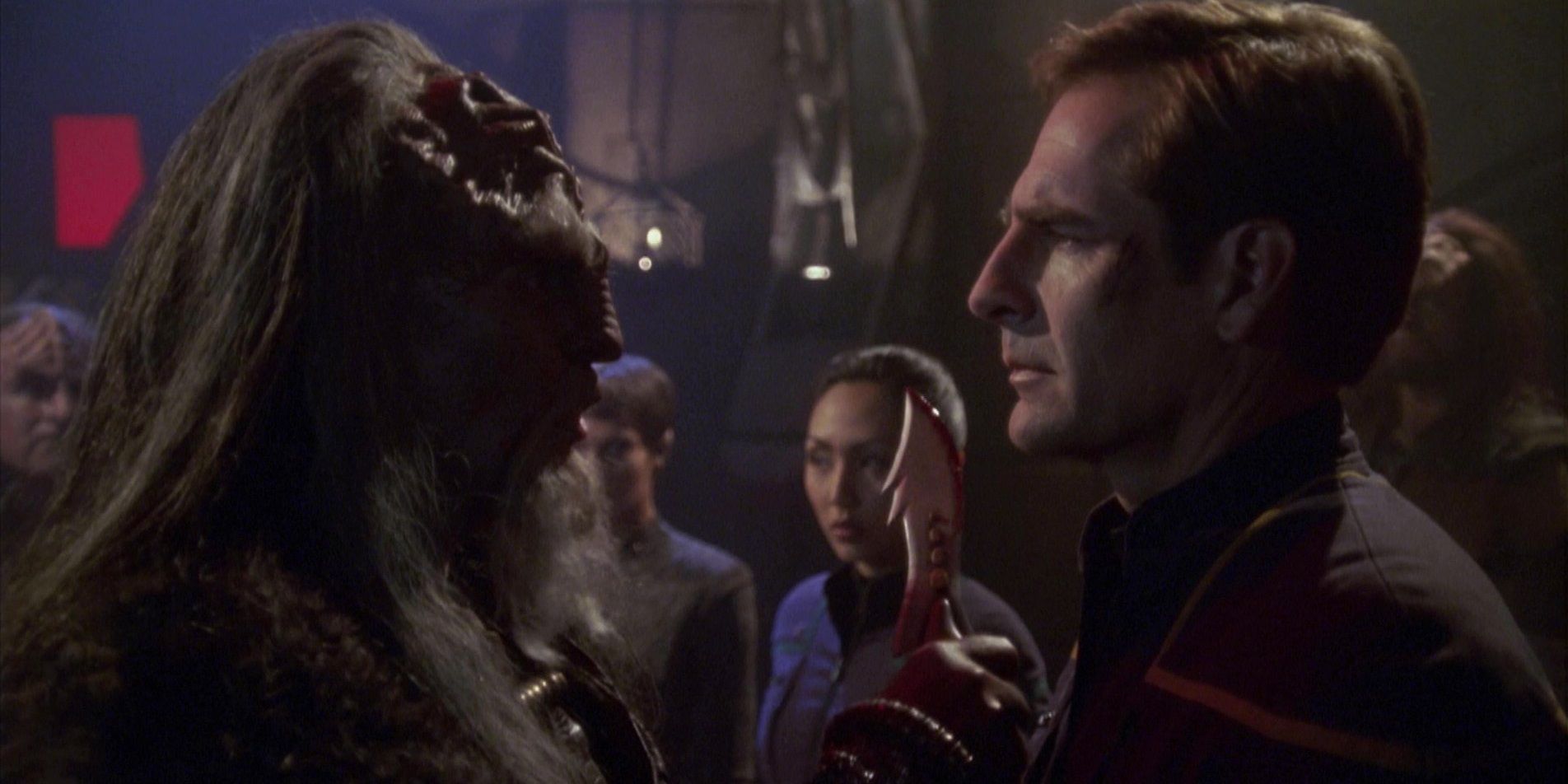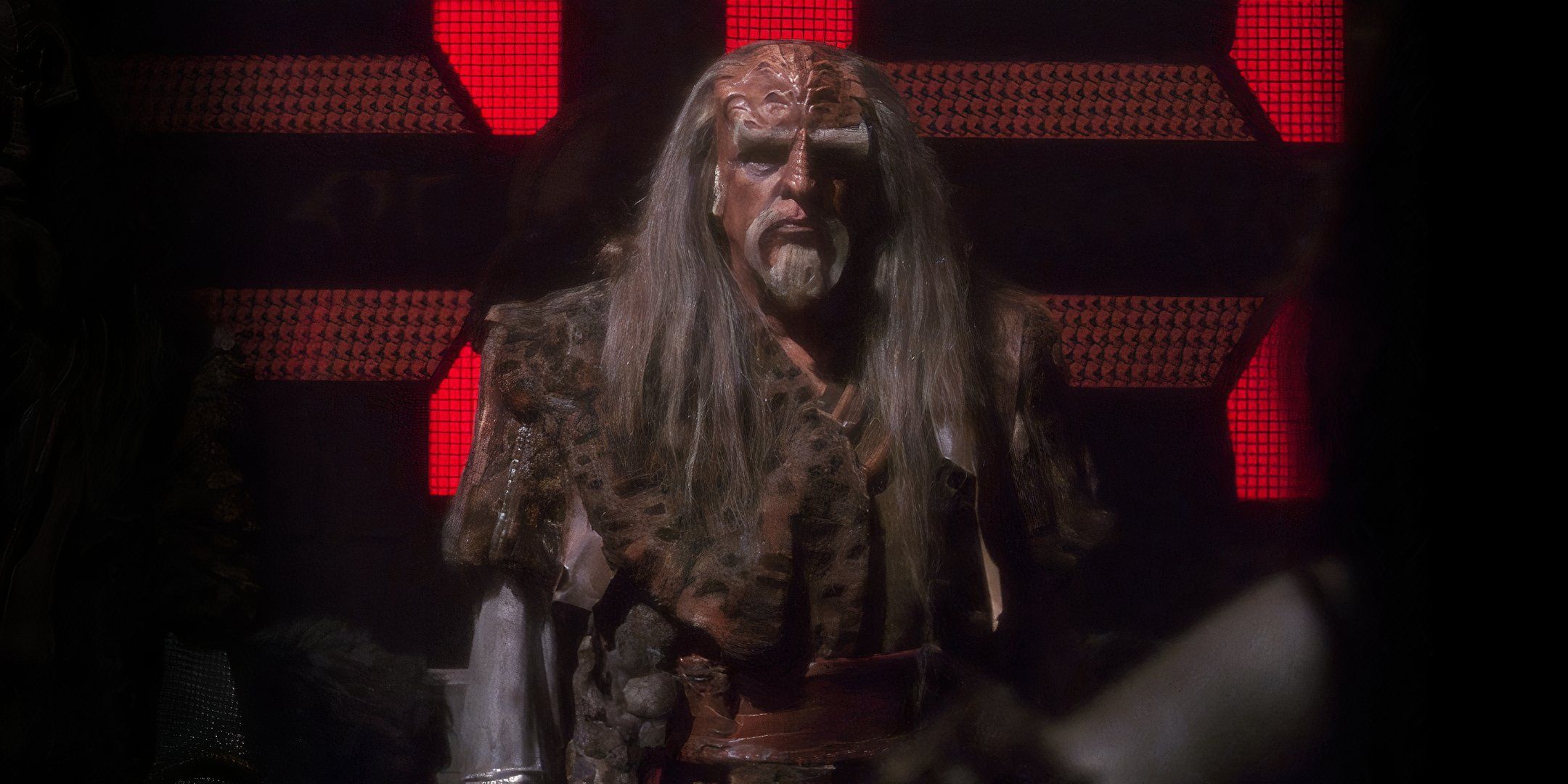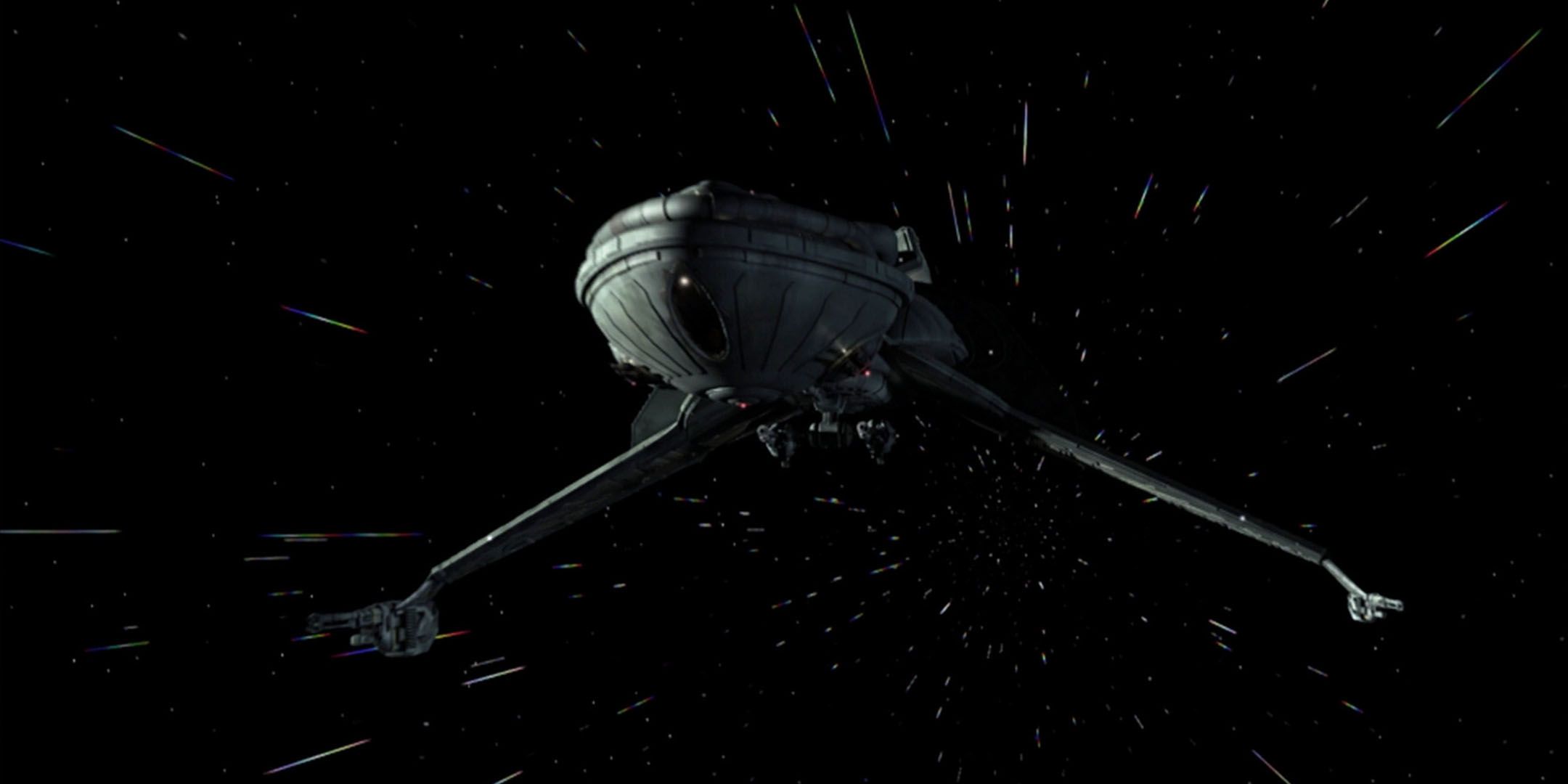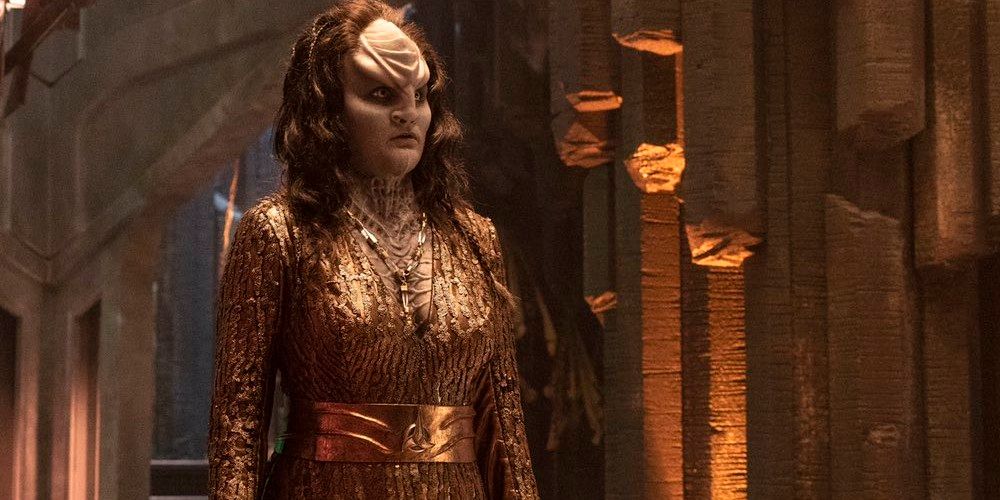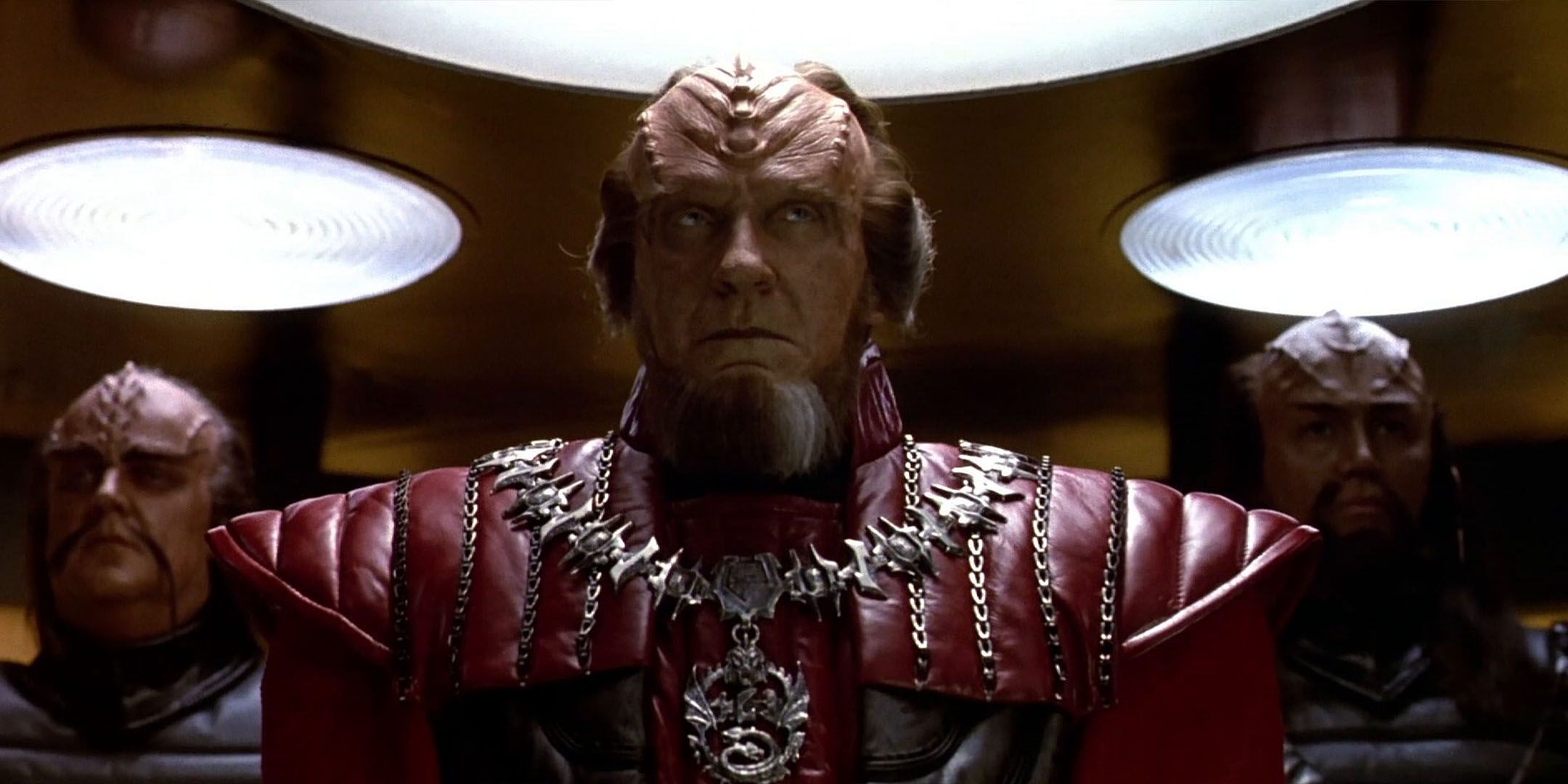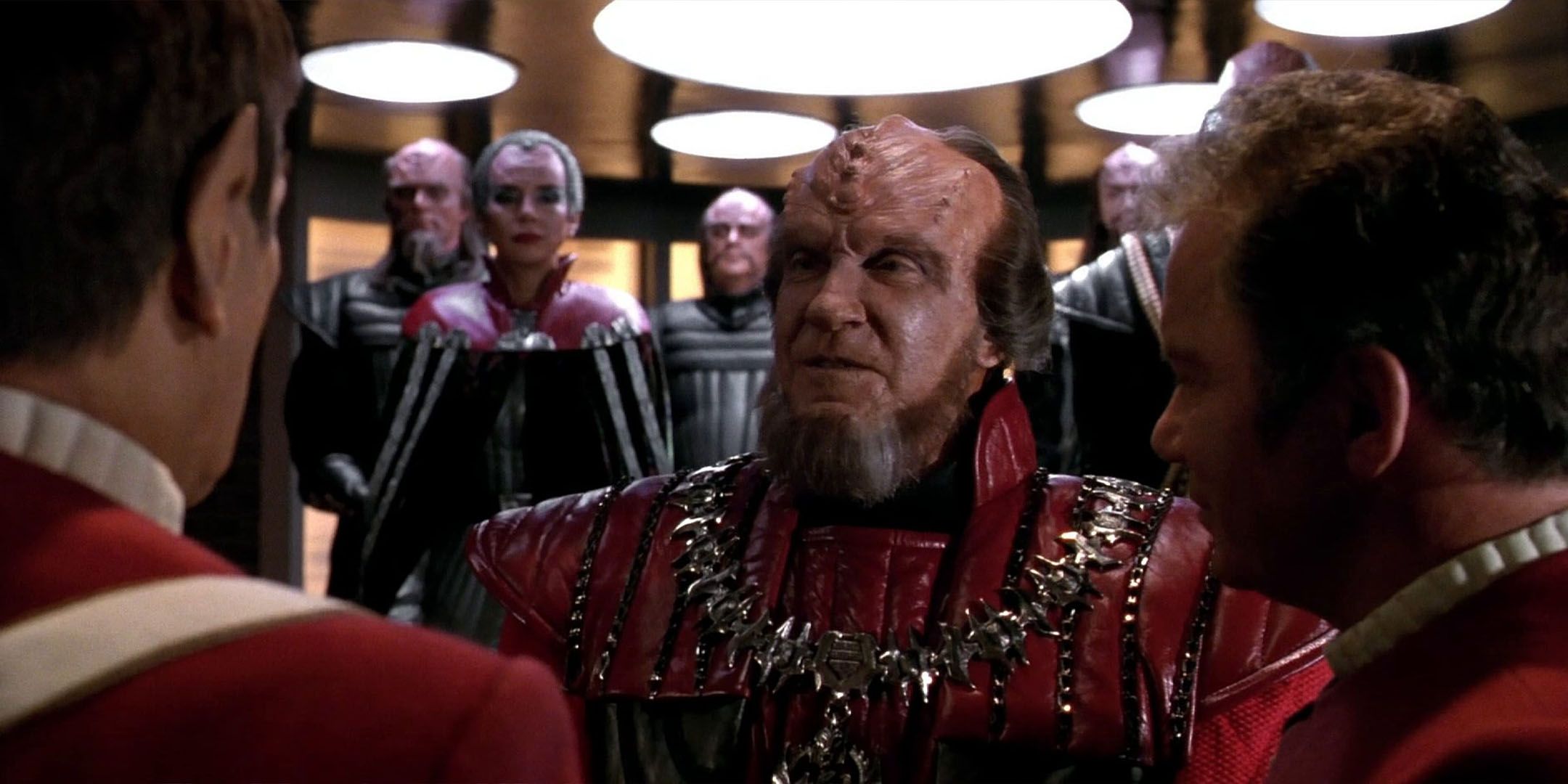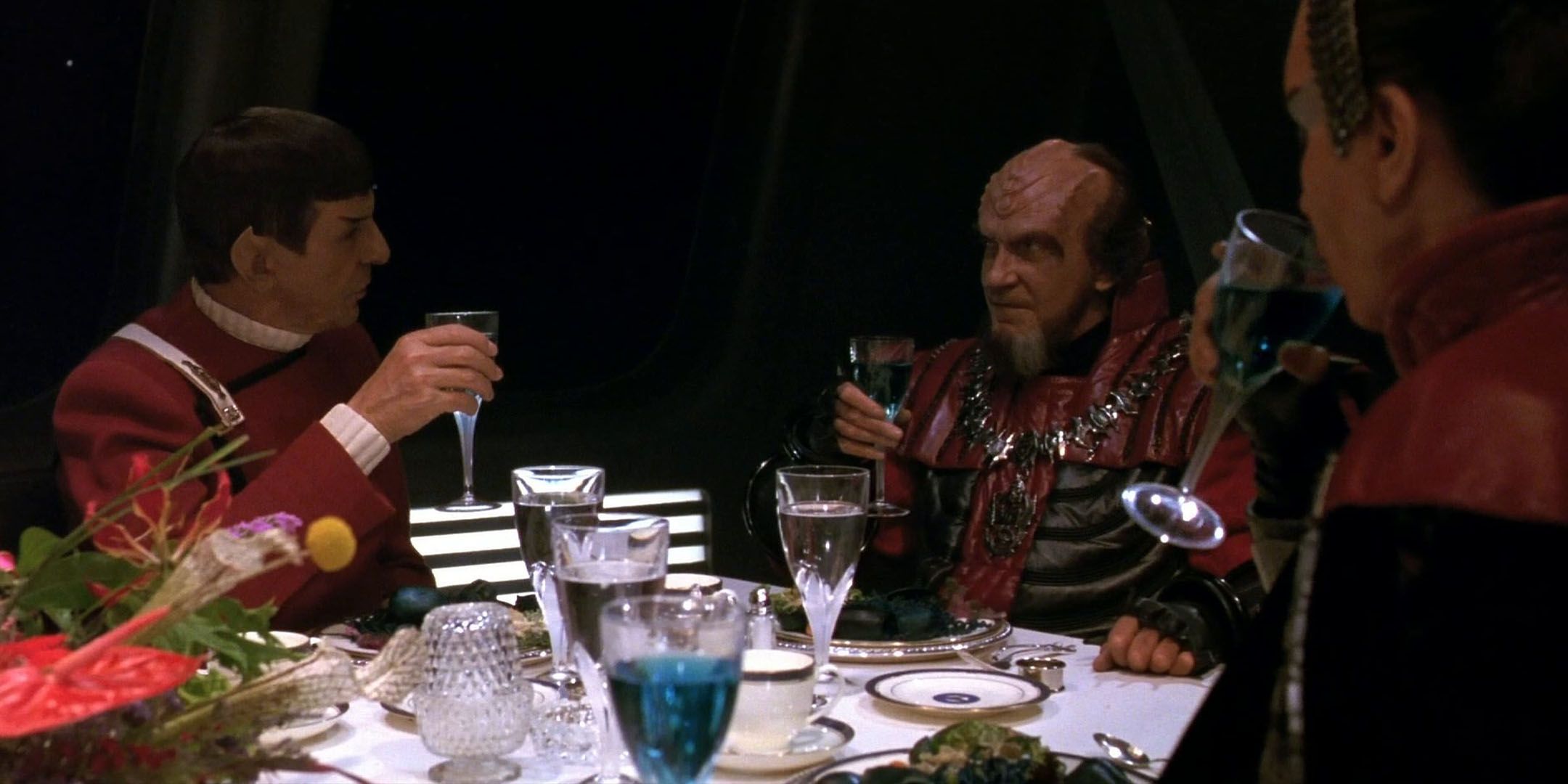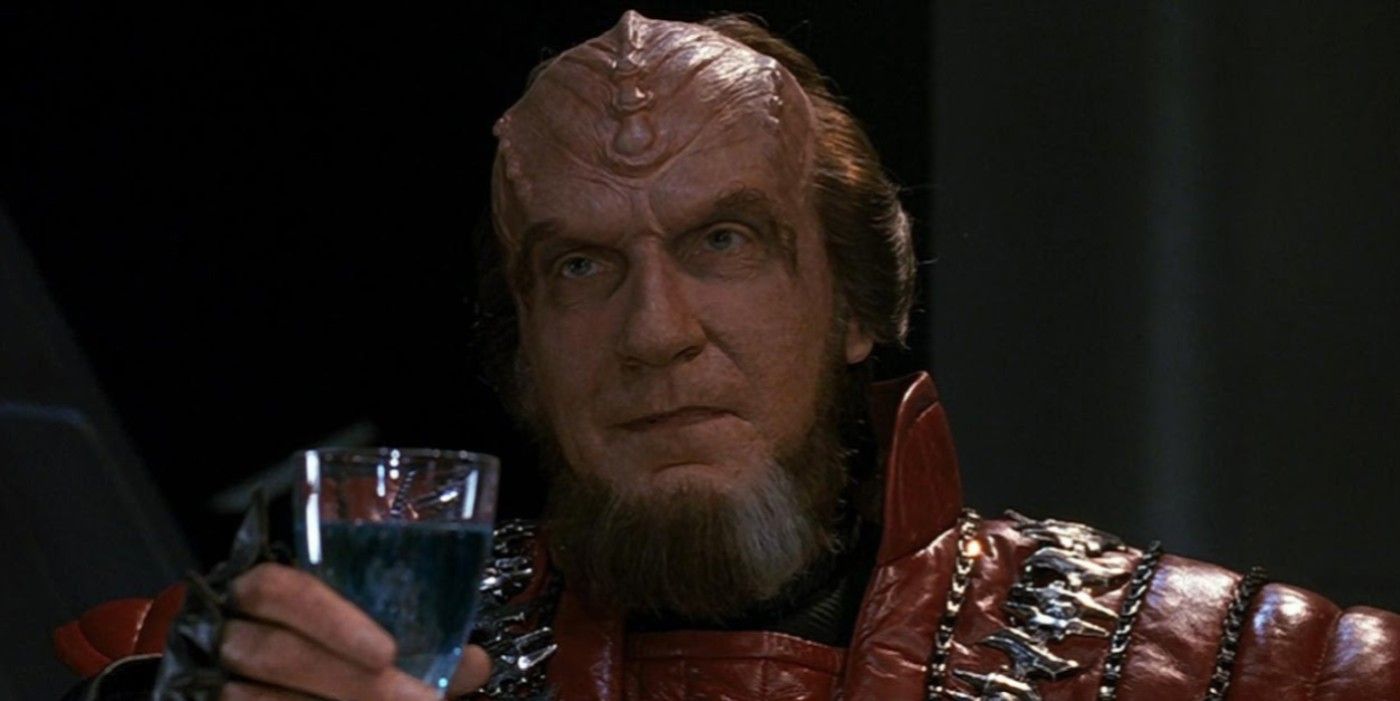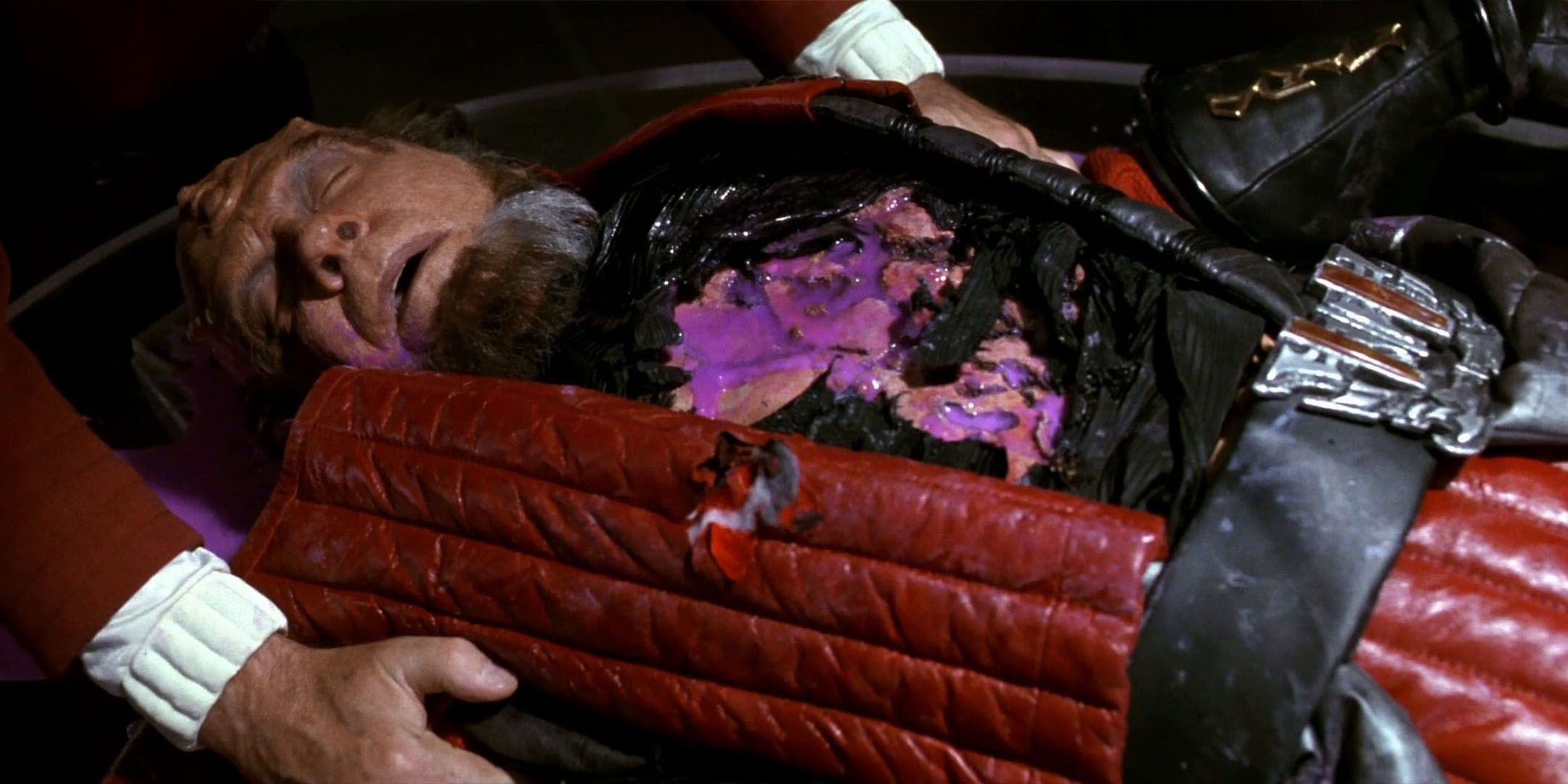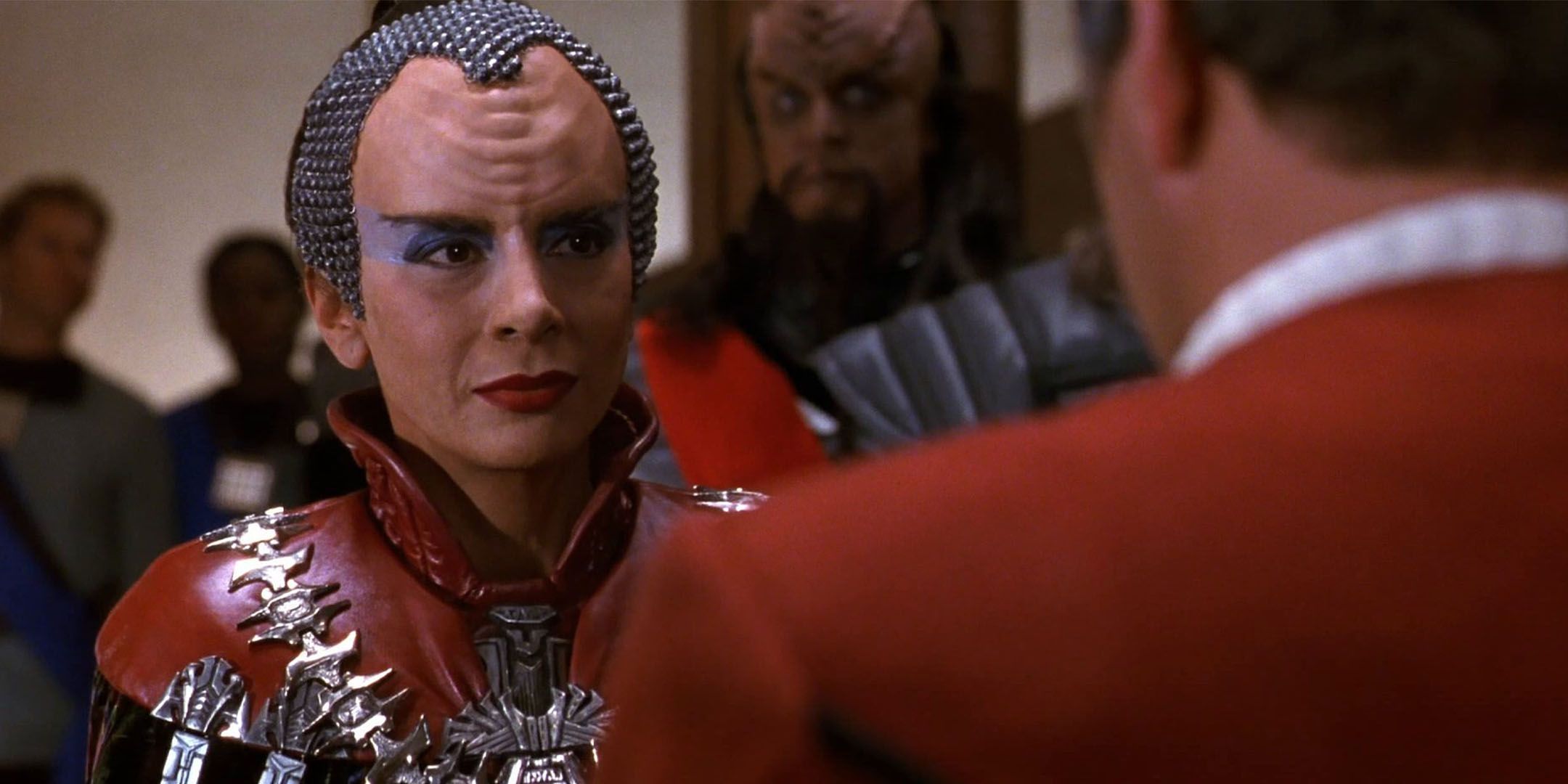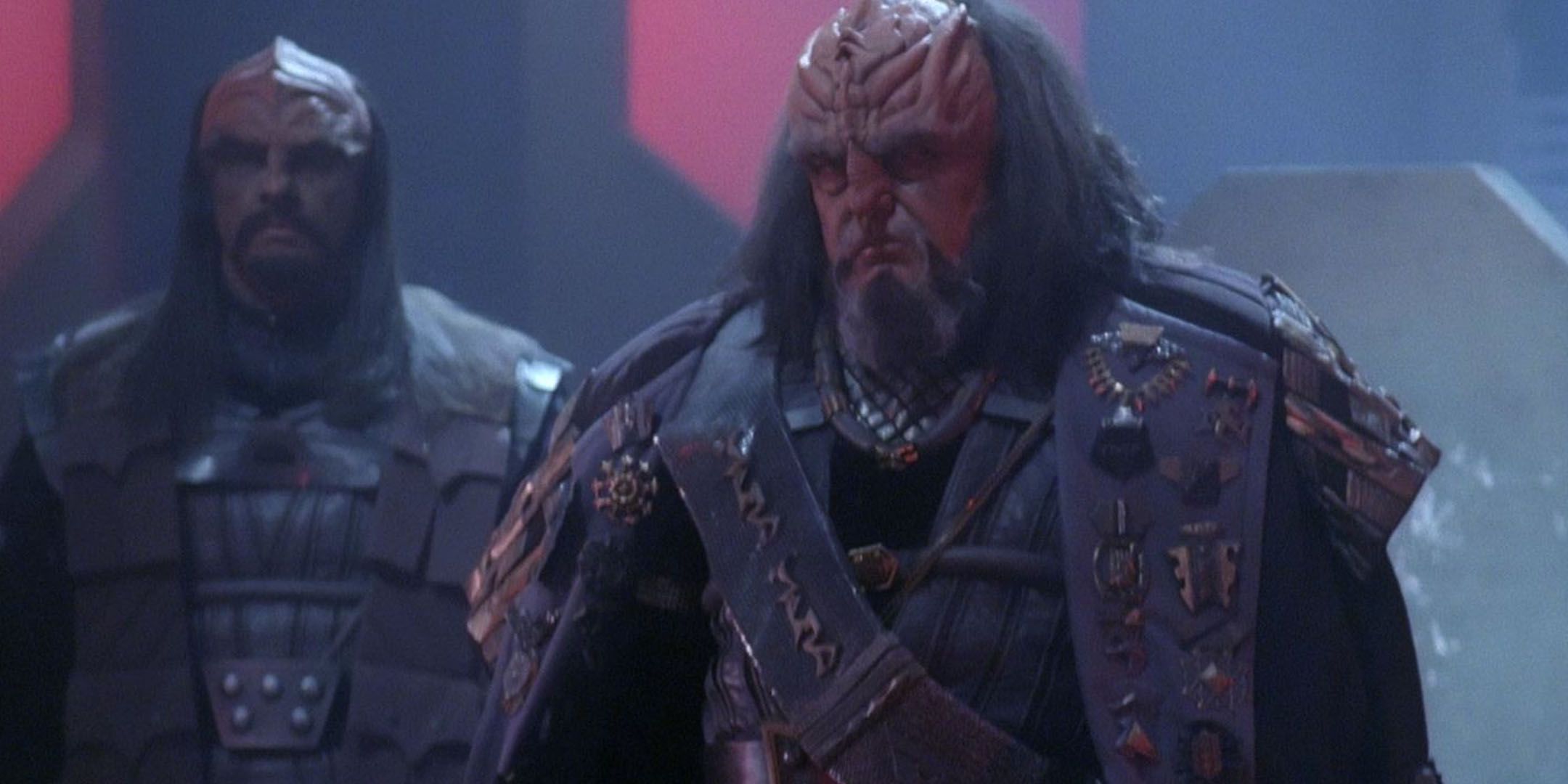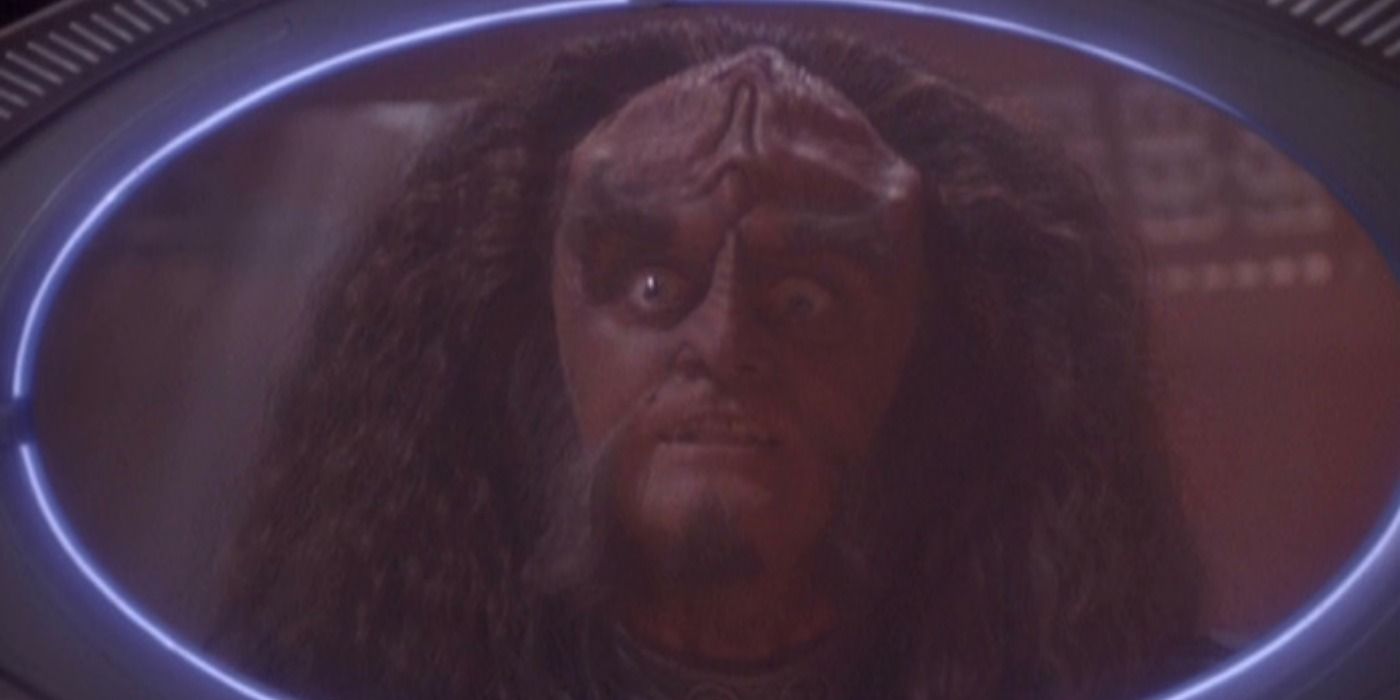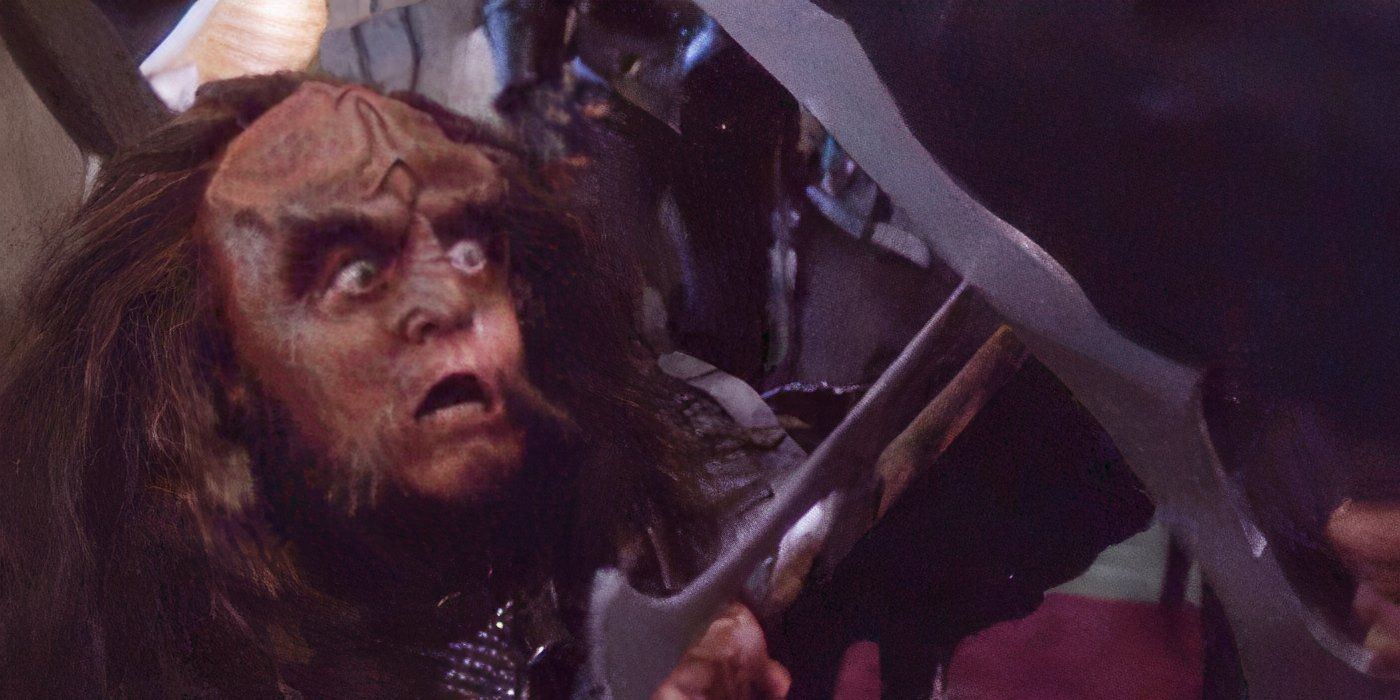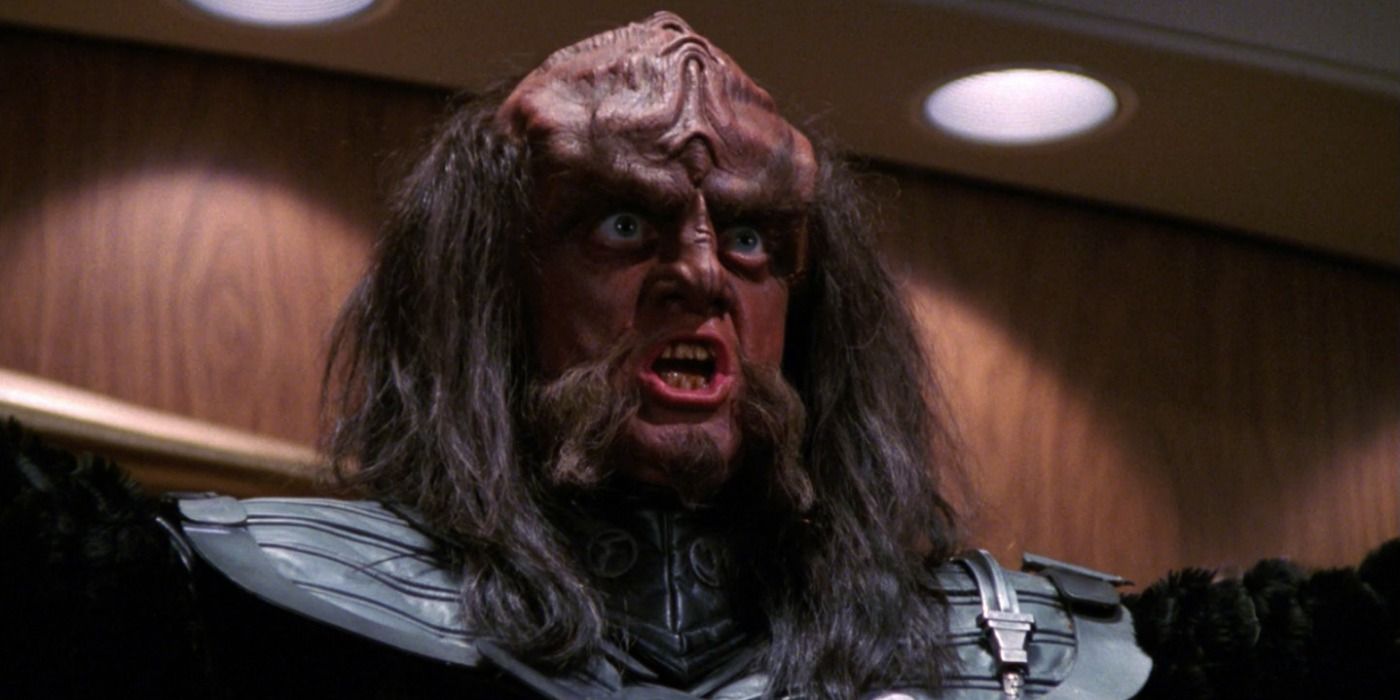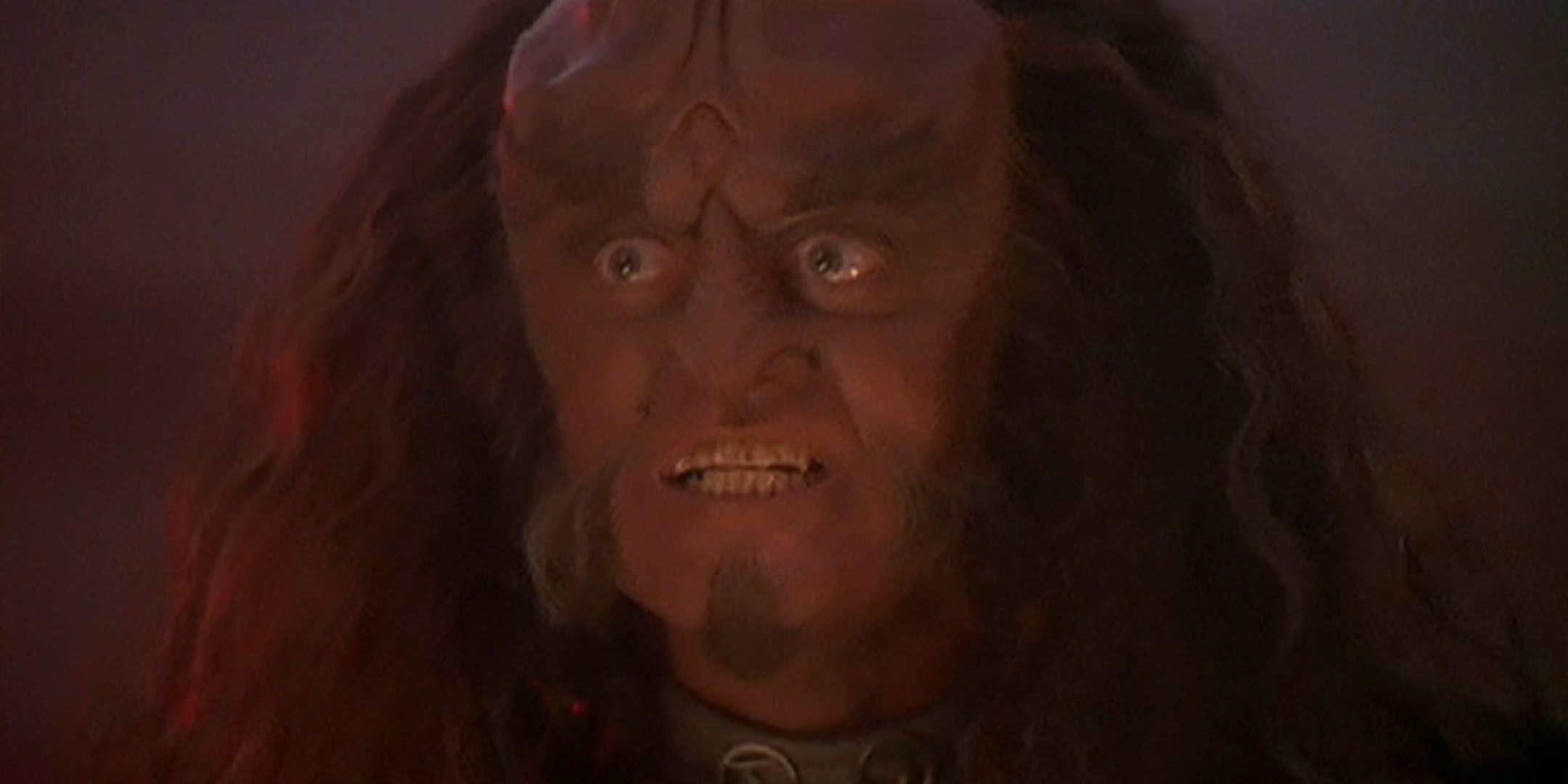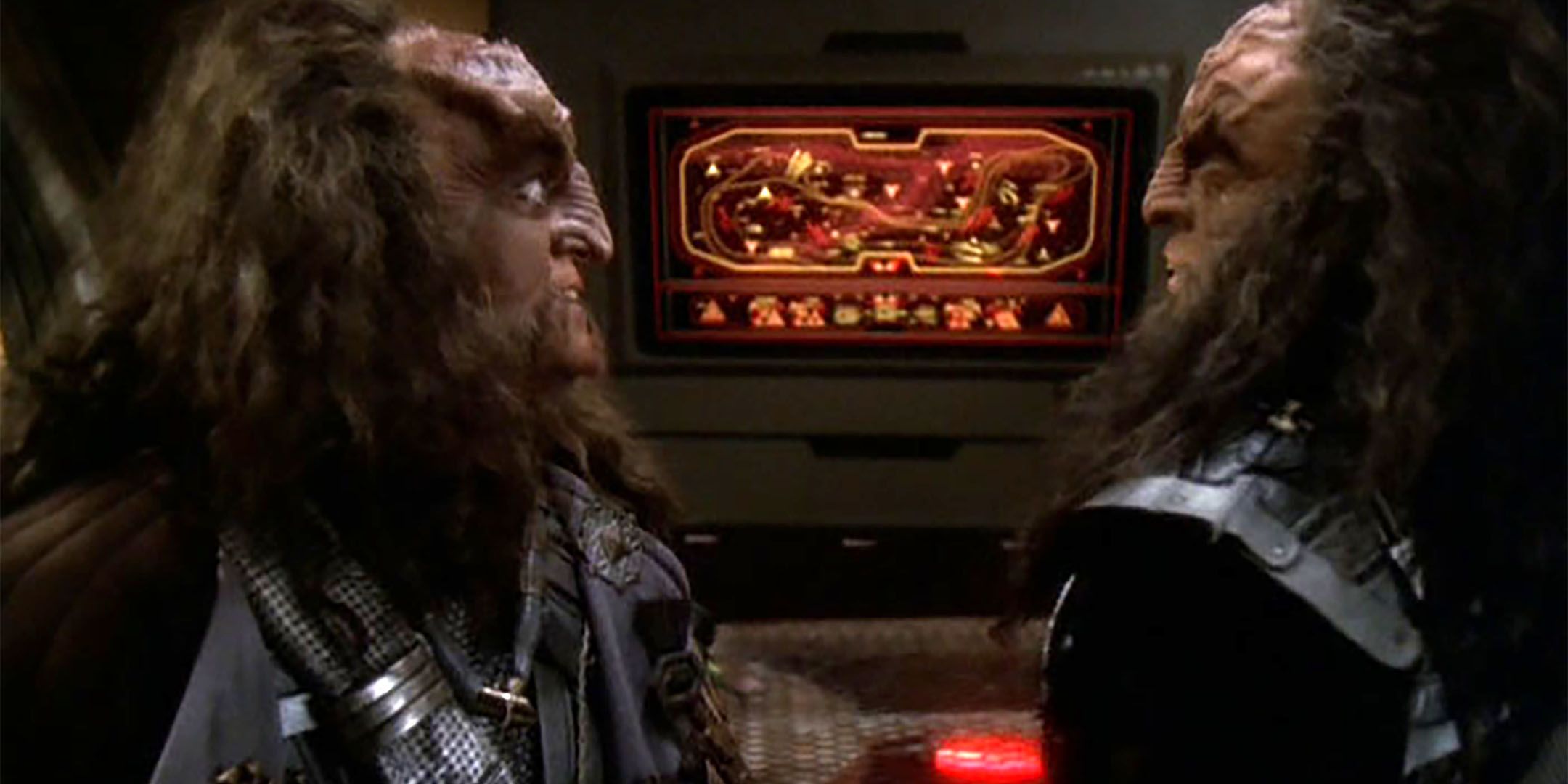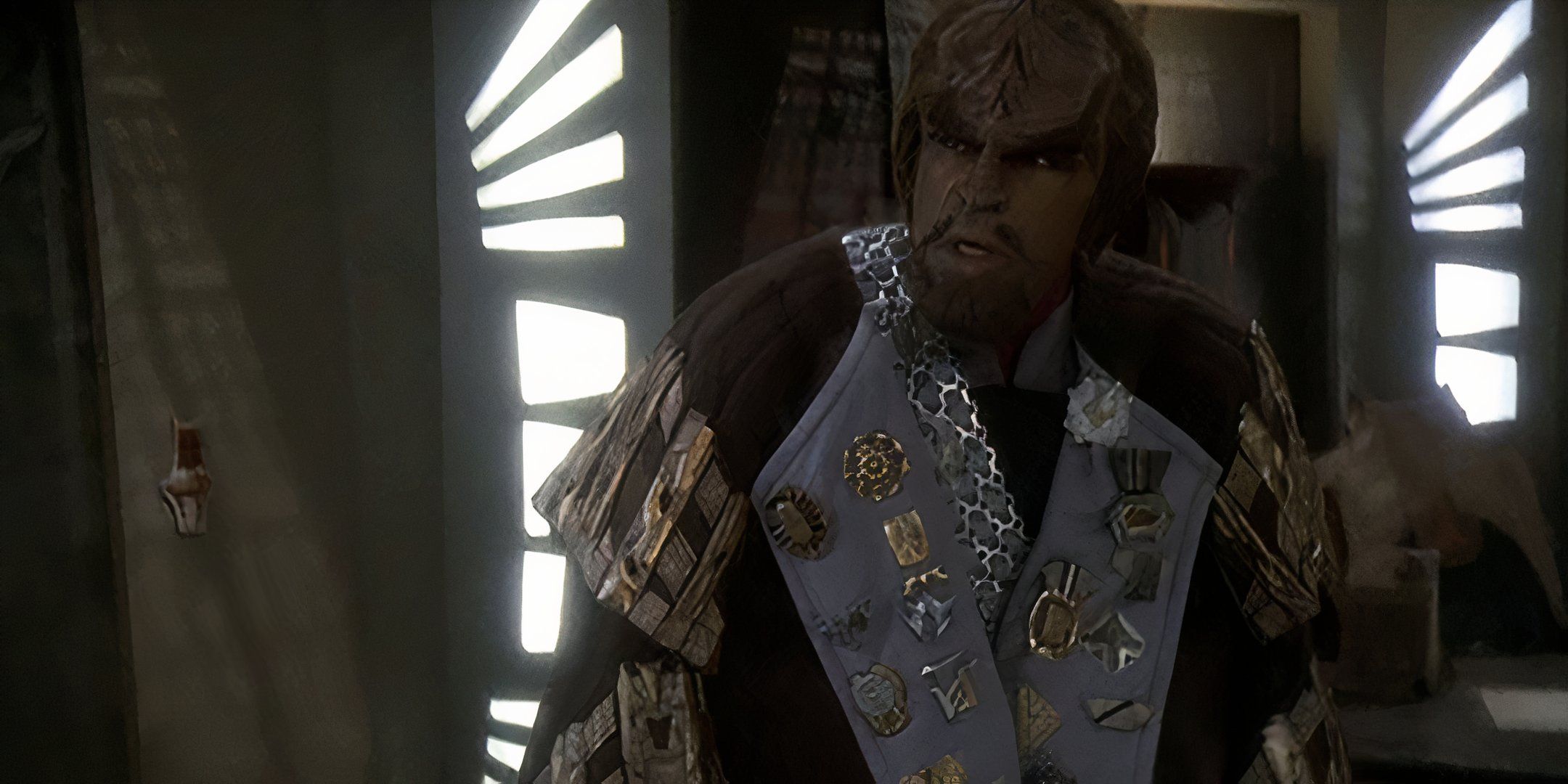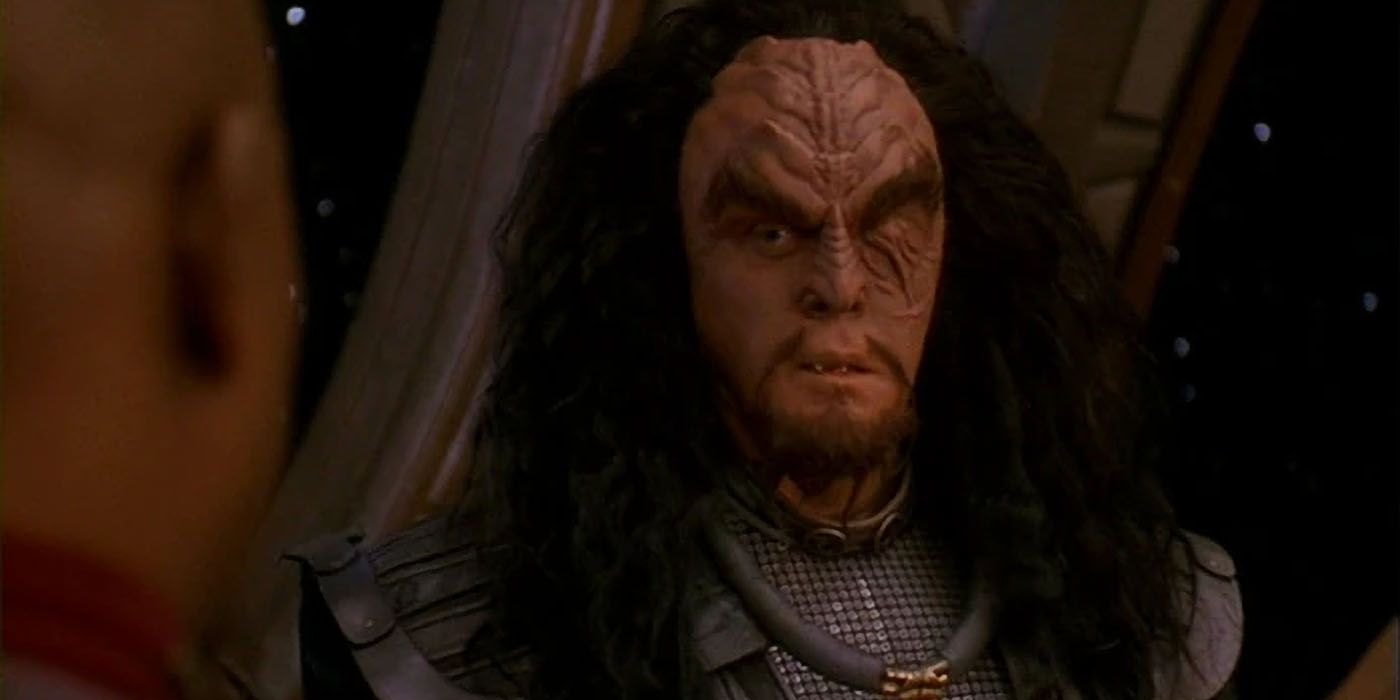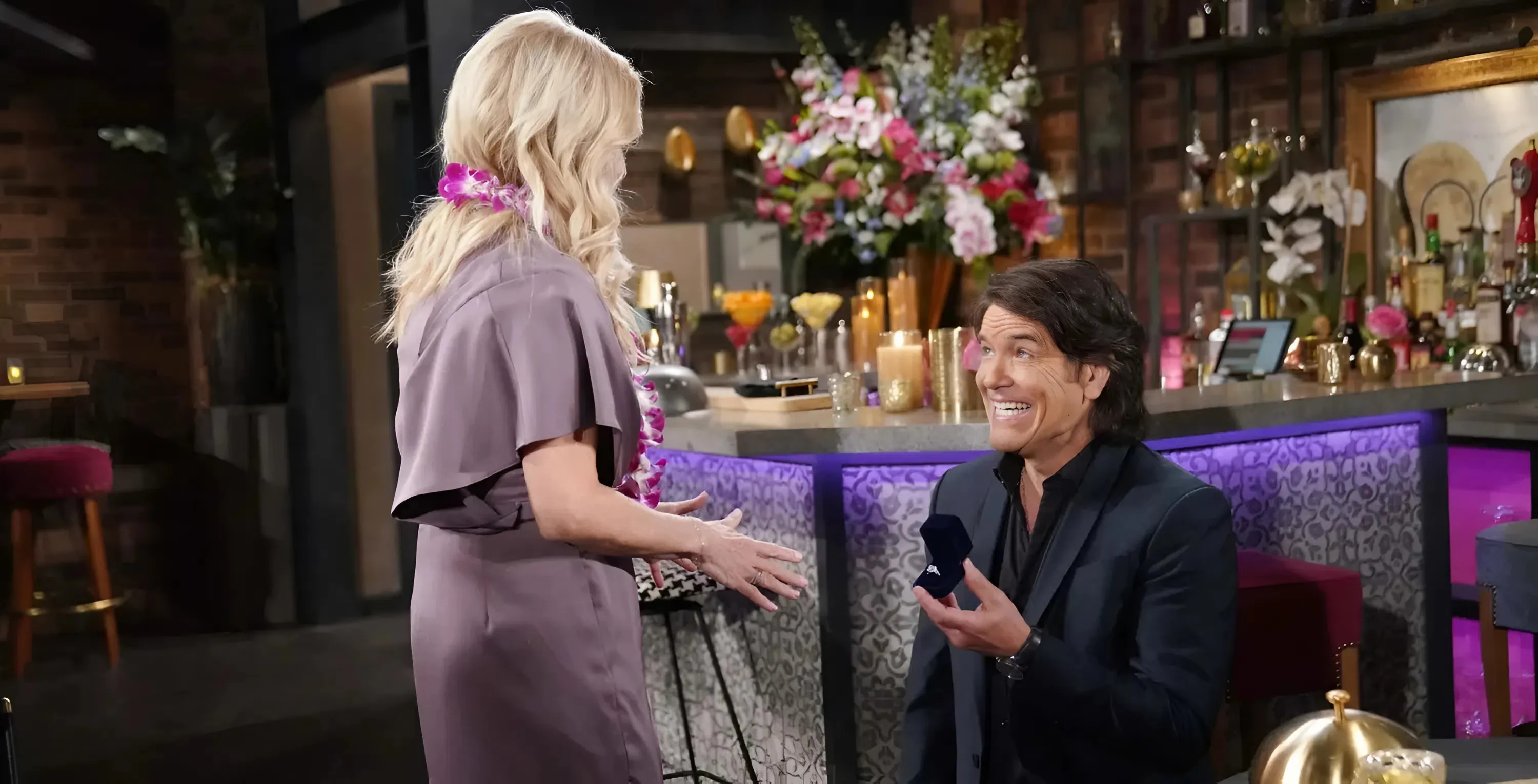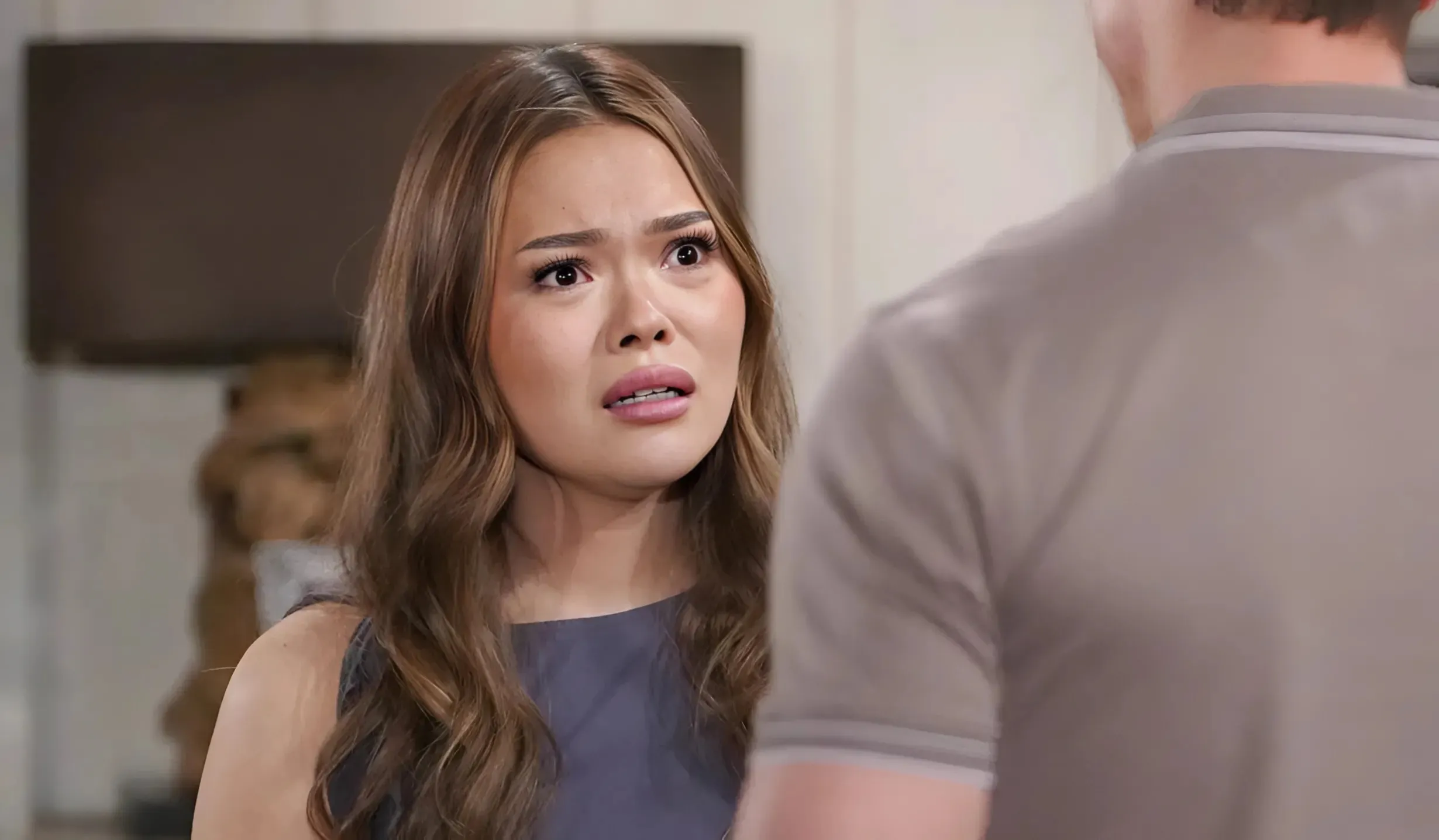The Klingon Emperor is the head of state, possessing only a symbolic cultural power, whereas the Klingon High Chancellor's power comes from being the leader of the High Council, the governing body of the Klingon Empire. Unlike the democratic United Federation of Planets, the Klingon High Council is an oligarchy, with its members representing the most powerful Klingon Houses. As such, the Chancellor is not voted into the role, but must win the title in the Rite of Succession. Challengers may vie for the Chancellor's seat if it's vacant, or a warrior may become Chancellor by besting the current Chancellor in personal combat.
Here are the 11 known Klingon High Chancellors in Star Trek thus far:
11Chancellor Mow'ga
Referenced In Star Trek: Deep Space Nine
Mow'ga was an early Chancellor of the Second Empire who attempted to conquer the Breen. In Star Trek: Deep Space Nine season 7, episode 18, "'Til Death Do Us Part", Lt. Commander Worf (Michael Dorn) brings up Mow'ga's failed campaign to emphasize how dangerous the Breen are.
Since Chancellor Mow'ga was never seen on screen, this Second Empire Chancellor is represented here by the crew of the Klingon Barge of the Dead from Star Trek: Voyager season 6, episode 3, "Barge of the Dead".
10Unnamed Chancellor (Peter Henry Schroeder)
Star Trek: Enterprise (late 2140s – 2151)
In the 22nd century, Klingon customs are so inscrutable to Starfleet that even the name of the Klingon Chancellor in Star Trek: Enterprise's premiere episode, "Broken Bow", is never revealed to us. So Captain Jonathan Archer (Scott Bakula) doesn't realize the Chancellor definitely isn't thanking Archer for bringing Klingon warrior Klaang (Tommy 'Tiny' Lister, Jr.) back to Q'onoS.
Returning Klaang as a prisoner—which seals his disgrace, instead of giving him an honorable death—is the first indication, chronologically, that wildly different philosophies will lead to many of Star Trek's wars involving conflict between the Klingons and Starfleet.
9Unnamed Chancellor (Dan Desmond)
Star Trek: Enterprise (2153)
8Chancellor M'Rek
Star Trek: Enterprise (2154)
Star Trek: Enterprise's other Klingon Chancellors were seen but not named, while Chancellor M'Rek was named, but not seen. It's possible that M'Rek was the sole Klingon Chancellor throughout Star Trek: Enterprise, and Archer simply didn't refer to M'Rek by name before Star Trek: Enterprise season 4—possibly because Archer didn't know it.
7Chancellor L'Rell (Mary Chieffo)
Star Trek: Discovery (2257 onward)
Chancellor L'Rell gained her position as head of the Klingon High Council through strategy, rather than direct personal combat or a ritual, and L'Rell initially preferred to operate in the shadows instead of as an official leader. As a follower of T'Kuvma (Chris Obi), L'Rell believed the Klingon Houses should unite as one power, instead of succumbing to discord and infighting. T'Kuvma named Voq (Shazad Latif), not L'Rell, as the next Head of House, but L'Rell still worked to achieve T'Kuvma's goals through deception and subterfuge, like manipulating Voq into spying on the Federation by becoming Ash Tyler.
6Chancellor Gorkon (David Warner)
Star Trek VI: The Undiscovered Country (until 2293)
Unlike the Klingons of Star Trek: The Original Series and earlier Star Trek movies, Chancellor Gorkon actively sought peace between the Klingon Empire and the United Federation of Planets. While Captain James T. Kirk (William Shatner) was skeptical that true peace could be achieved between their people, Chancellor Gorkon still made strong moves to make that peace a reality. Gorkon's efforts were strongly opposed by certain parties within the Klingon Empire, however, and Gorkon was assassinated while en route to Khitomer, where the peace talks would take place.
Chancellor Gorkon was a visionary who became a target because he was a threat to long-held beliefs on both sides.
5Chancellor Azetbur (Rosana DeSoto)
Star Trek VI: The Undiscovered Country (2293 onward)
Chancellor Azetbur became High Chancellor after the death of her father, Chancellor Gorkon. Like Gorkon, Azetbur believed in pursuing peace between the Klingon Empire and the Federation, and took Gorkon's place in the peace talks that resulted in the Khitomer Accords.
While Azetbur's reign as High Chancellor isn't well-documented, the relatively good relations between the Klingon Empire and the Federation in Star Trek: The Next Generation could be attributed to Azetbur working to maintain the peace that her father spearheaded.
4Chancellor K'mpec (Charles Cooper)
Star Trek: The Next Generation (until 2367)
K'mpec was explicitly never referred to as High Chancellor, because "Sins of the Father" and "Reunion" both aired in 1990, before the title of High Chancellor was created for 1991's Star Trek VI: The Undiscovered Country.
K'mpec's tight rein on the Klingon High Council slowly diminished, and in Star Trek: The Next Generation season 4, episode 7, "Reunion", his bloodwine was slowly poisoned. According to tradition, the murderer of the current Chancellor would rise to power, but K'mpec believed a Klingon capable of resorting to a dishonorable weapon like poison would also be poison to the Klingon Empire. To preserve the honor of the Empire, K'mpec trusted Captain Jean-Luc Picard (Patrick Stewart) as the Arbiter of Succession, because Picard's ethics would ensure K'mpec's successor would not be a cowardly poisoner.
3Chancellor Gowron (Robert O'Reilly)
Star Trek: The Next Generation & Star Trek: Deep Space Nine (2367 – 2375)
Chancellor Gowron's grandiosity was cover for his deep insecurities. Gowron felt threatened by those he believed would usurp his power, even if they had no intention of taking it, like the cloned Kahless the Unforgettable (Kevin Conway) or General Martok (J.G. Hertzler). When Martok rose to prominence leading the Klingon Empire's warriors in Star Trek: Deep Space Nine's Dominion War, Gowron believed that Martok was stealing his glory. But Gowron's paranoia and need for adulation ultimately led to his demise.
Chancellor Gowron may be the character most associated with the title of Klingon High Chancellor among fans, since we saw Gowron's eight years of rule from the start in Star Trek: The Next Generation season 4 to an untimely (but deserved) end in Star Trek: Deep Space Nine season 7. Gowron exemplified how difficult the alliance between the Klingon Empire and the Federation could be, because Gowron's goals sometimes aligned with the Federation's, but Gowron could also be an obstructive antagonist when Star Trek stories called for it.
2Chancellor Worf (Michael Dorn)
Star Trek: Deep Space Nine (2375)
In Star Trek: Picard season 3, "Slayer of Gowron" is among the many titles Worf uses to introduce himself.
Worf encouraged General Martok to challenge Gowron, but Martok refused. Martok's allegiance was to the Empire before anything else, and Martok believed he would invite shame by challenging Chancellor Gowron during wartime, even if Martok believed Gowron was wrong. Instead, Worf took matters into his own hands, and immediately abdicated his new title to General Martok.
1Chancellor Martok (J.G. Hertzler)
Star Trek: Deep Space Nine (2375 onward)
Throughout Star Trek: Deep Space Nine, General Martok demonstrated true honor through his respect for others, no matter their reputation, which made him an excellent leader. In the Dominion prison, Martok respected Dr. Julian Bashir (Alexander Siddig) as a much-needed healer, because doctors make it possible for warriors to continue fighting. Martok accepted Worf as a brother, despite the discommendation that Worf received. When assigned to the most downtrodden of Klingon Birds-of-Prey, Martok battled his own internal demons, eventually inspiring a disheartened crew, and bringing honor to the name IKS Rotarran.
Chancellor Martok's success could not have happened without the High Chancellors that came before him.
